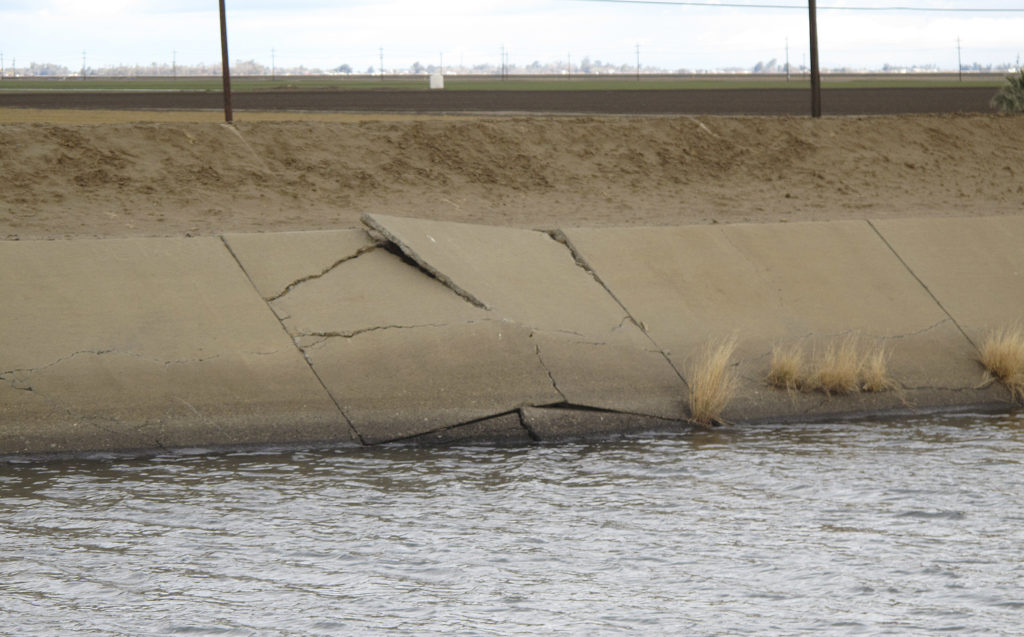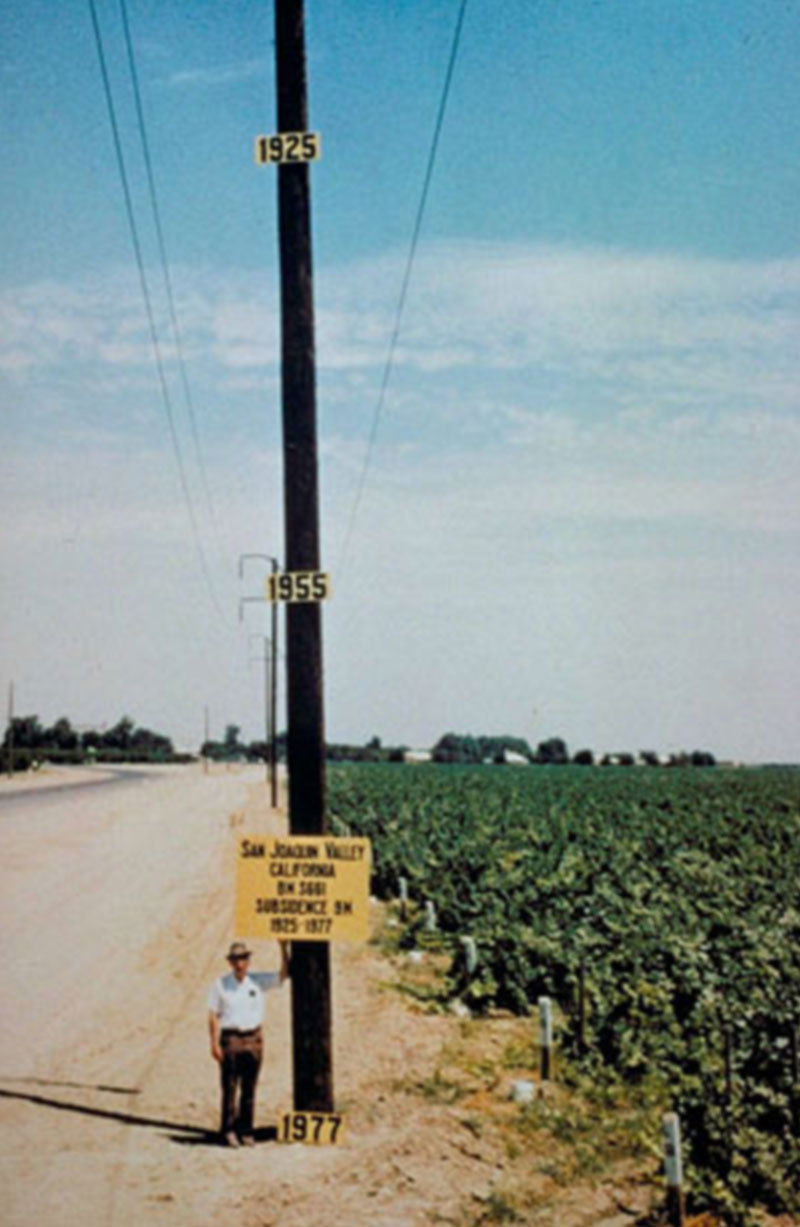Environment & Energy
Related: About this forumWet Winter Will Not Stop CA's Sinking Central Valley, Or Slow Aquifer Depletion

The powerful storm that pounded California this week seemed like the break the state so desperately needed.Unfortunately, it wasn’t enough. In fact, there is probably no storm capable of washing away California’s water woes, according to scientists.
The state simply is using too much water – even during wet years. As a result, thousands of miles of prime agricultural area in the Central Valley are sinking. Roads and bridges are cracking, threatening to cause $1 billion in damage. Homeowners are watching their water supply dwindle.“We’re taking more out than we’re putting back in,” said Michelle Sneed, a U.S. Geological Survey hydrologist in California. “You can’t do that forever without running out.”
EDIT
Eventually, maybe 22 percent of the California’s irrigated farmland – about 2 million acres – could be abandoned as a result of water problems, according to Jay Lund, an environmental engineering professor at the University of California, Davis. These farms provide more than a million jobs in the state, sustaining whole communities, and if the farming sector contracts, so do the livelihoods of the people. The water depletion also is causing collateral damage to local families as farmers and other investors scramble to capitalize on the last remaining sources of water in the state.
Andrea and Milt Medeiros are worried the domestic well in their house will run dry after nearly a million almond trees were planted near their home outside Oakdale, in the foothills of the Sierra Nevada. The almond orchards replaced what had been mostly unirrigated pastureland. “I just describe it as this, you know, this cancer that’s spreading all over,” said Andrea Medeiros, a longtime schoolteacher.
Since the almond orchard was planted, she says the water in their domestic well has been dropping. They’re worried it will go dry eventually, which has happened to thousands of other homes across the Central Valley. “People are angry. You know we worked our whole life. If we lose our home for something that’s out of our control, what are we going to do, work another 34 years to get it back?” she said. “And that’s just crazy to feel like you’re being forced out of your home.”
EDIT

The lining of the Delta-Mendota Canal near Dos Palos, Calif., is buckling because of sinking land. Californians are using too much water, causing the sinking of prime agricultural area in the Central Valley.
EDIT
https://www.revealnews.org/article/the-drought-didnt-make-california-sink-its-crops-did/
deminwi
(66 posts)Not sure what folks in CA can do about this situation. This isn't something new, so I don't understand why the brightest minds in CA haven't found a solution. Other countries convert fresh water out of salt water.......why not give that a try? I would think that would be expensive, but at the end of the day, CA needs water and this is one way to provide it.
LWolf
(46,179 posts)One nobody wants to address.
California, like the rest of the planet, needs fewer people.
mackdaddy
(1,527 posts)And the Sacramento River is a tidal river held back by levies.
It looks like the land is sinking faster that the sea level is rising. (at least for now) I saw a photo where someone has painted marking on a power pole showing the 30 foot drop of the level of the ground from the freshwater pumping.
Much of this area is a major food crop production area, which could also be swamped by saltwater.
Here is some information on sea level dangers nearly a hundred miles from the coast in California.
http://www.climatecentral.org/pdfs/SLR-CA-SS-PressRelease.pdf
OnlinePoker
(5,719 posts)The first is from 1977

The second is from 2013

brush
(53,778 posts)When I read that I stopped buying almonds.
Perhaps the California agricultural industry needs to reassess how much acreage is allotted to particular crops.
CrispyQ
(36,464 posts)We need to change something - our way of life or our numbers, but the current course isn't sustainable.
mopinko
(70,103 posts)just seeing the incredible impact on water retention in my hugelbeds, i wish i could find a way to really get this into the public mind.
so many things would be better if this were adopted in a widespread way.
every farm field should be ringed by huglepiles. sequesters carbon from the plant material that gets buried, builds new soil, solves a waste disposal problem, stops runoff into watersheds. and slashes, and i mean slashes, water use.
maybe after most of us get wiped out, those of us who are left will care to do it right.